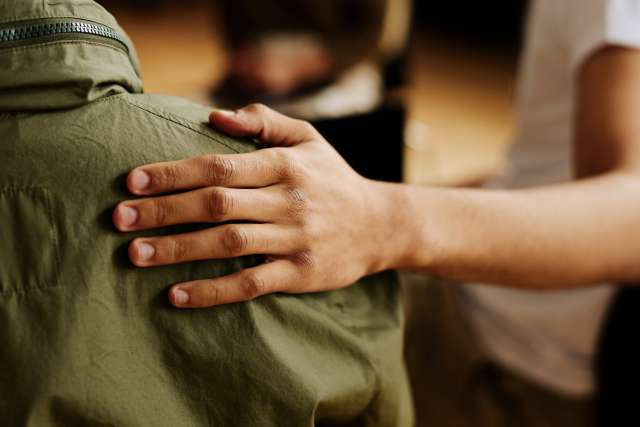People who experience shocking, scary or traumatic events may be at risk of developing post-traumatic stress disorder (PTSD). About 6% of people experience PTSD at some point in their lives according to the National Center for PTSD. The condition can affect anyone at any age who has experienced trauma. Combat veterans, first responders and victims or witnesses of crimes are all particularly vulnerable.
What are the signs of PTSD?
Symptoms of PTSD can show up immediately after experiencing a traumatic event — or they may start months or years later. If a loved one is experiencing PTSD, they may display signs, including:
- Reliving the traumatic event: It’s common to have nightmares, flashbacks or other powerful memories that make them feel like they’re experiencing the trauma all over again.
- Avoiding triggers: Someone with PTSD may try to stay away from places, sounds, smells or activities that remind them of the trauma.
- Changes to mood or memory: Many people have trouble remembering details of the event. It’s also common to feel numb, depressed, or even guilt or shame about what happened.
- Feeling anxious or on edge: Hyperarousal involves feeling constantly on high alert and jittery. This reaction can lead people with PTSD to engage in dangerous, self-destructive or reckless behaviors.
What treatments help with PTSD?
If you think a friend or loved one is experiencing symptoms of PTSD, encourage them to seek help from a mental health professional. Psychotherapy and antidepressant or anti-anxiety medications are the most common treatments for people with PTSD.
A mental health professional who specializes in helping people heal from trauma can treat PTSD. In addition to traditional talk therapy, a trauma-focused therapist may use other methods, such as eye movement desensitization and reprocessing (EMDR). EMDR is often highly successful for treating PTSD. The method involves focusing on sounds or hand movements while you recall and talk about the traumatic event. That focus helps your brain reprocess the memories and make them feel less powerful and less traumatizing.
How can you support someone with PTSD?
The most important thing you can do for a loved one dealing with PTSD is to be there for them. They may try to push you away or avoid your efforts. If that happens, give them the space they need in the moment. But be sure they know you’re available to talk or help whenever they’re ready.
Your loved one may need help finding a mental health professional or keeping track of appointments. You can support them by going to appointments with them, providing transportation or filling prescriptions.
But don’t think you have to help all on your own. Someone who is coping with PTSD will benefit from a large network of support. Enlist friends and family to create a community around your loved one. Together, you can help by planning activities and encouraging exercise and other healthy lifestyle habits.
Even with treatment, PTSD symptoms can linger for years. Continue to be patient and supportive throughout those ups and down.
If you or your loved one is experiencing severe PTSD and having a mental health crisis, call 988 or reach out to other suicide prevention resources.



